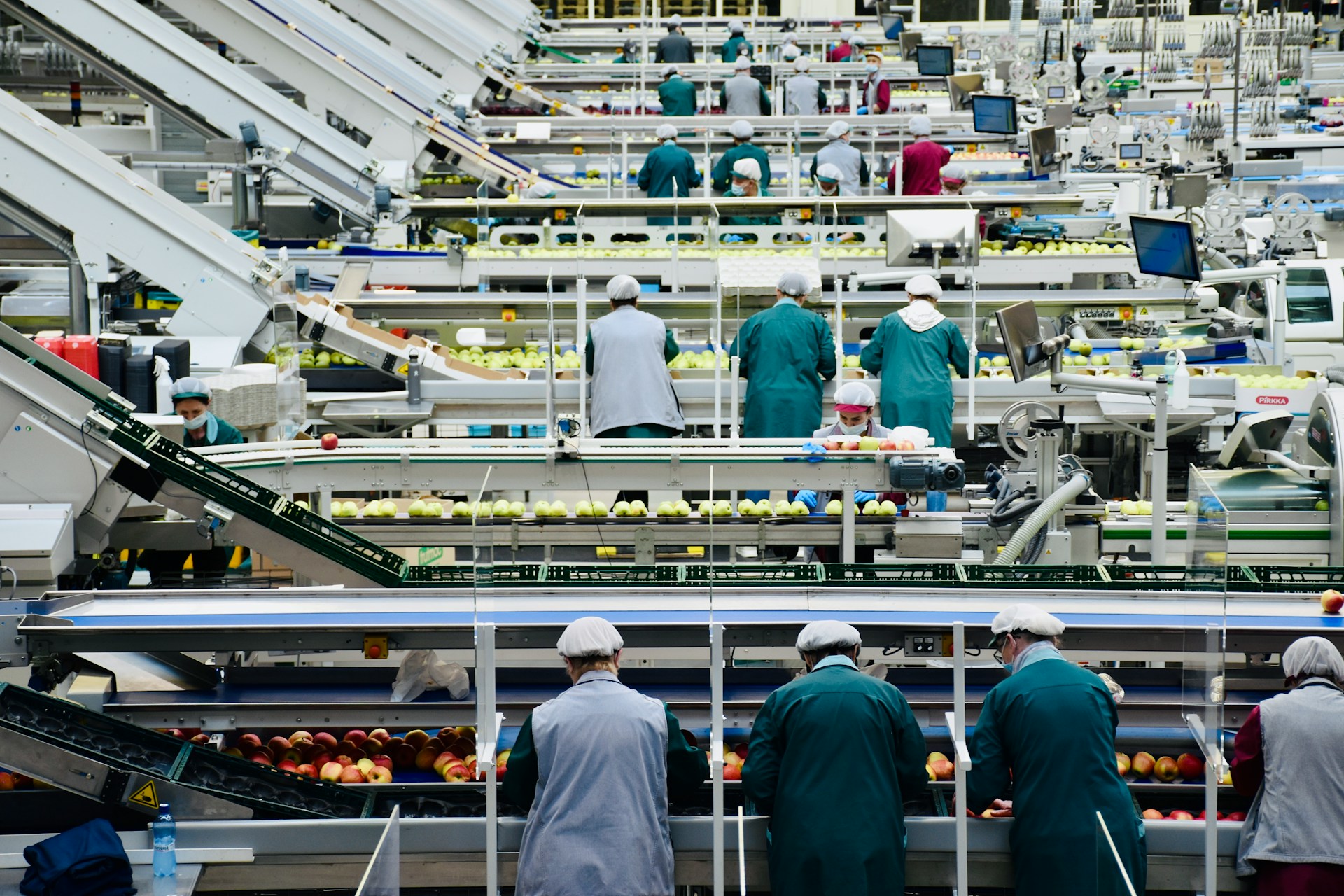In a recent development and as the global food industry grapples with escalating operational costs, labor shortages, and stricter sustainability mandates, food processors worldwide are reassessing their cold chain logistics strategies. The latest insights, based on the October 2024 report from Rabobank, titled “Do It or Buy It? Global Food Processors Rethink Logistics Outsourcing Strategies,” offer valuable perspectives on how businesses are navigating this critical challenge. This report, authored by Rik Moors, content editor at Rabobank Knowledge, underscores the increasing need for food companies to make strategic decisions regarding logistics operations in the face of rapidly changing market conditions.
Global Shifts in Cold Chain Logistics Strategy
In a world marked by unpredictable supply chains, increasing energy prices, and heightened demand for sustainability, food processors across the globe are facing pivotal decisions on whether to insource or outsource cold chain logistics. As Cyrille Filott, global strategist for consumer foods, packaging, and logistics at Rabobank, explains, many companies are now considering more tailored approaches to their logistics strategies, focusing specifically on optimizing their cold chains.
Filott states that food industry players worldwide are confronted with an intricate puzzle: “Where do I produce? Where are my customers? What are the transportation costs and sustainability implications?” These critical questions, which were largely peripheral just a few years ago, have now become central to boardroom discussions in food companies globally.
Moreover, the global debate continues over the optimal logistics model: whether to operate a few large centralized storage facilities with expansive transportation networks or smaller, localized storage units with more limited transport links. There is no one-size-fits-all solution, and the logistics strategy adopted by food processors depends on a range of factors, including geographical location, consumer demands, and the cost-effectiveness of different approaches.
Rising Costs and the Return to Just-in-Time Logistics
A significant shift in logistics thinking is the return to “just-in-time” (JIT) logistics. Although the COVID-19 pandemic temporarily disrupted global supply chains, companies are now returning to a low-inventory, rapid-turnaround model. According to Filott, “From a cost perspective, the most important thing right now is to have the least inventory possible.” This JIT approach helps reduce costs but requires businesses to react quickly to changes in consumer demand.
The enhanced predictability of consumer demand, thanks to advances in digital technology, has made it possible for food processors to better forecast needs and optimize logistics. Digital tools are also helping companies collaborate with partners to fill truckloads more efficiently, even if this means detouring to pick up additional shipments.
Energy and Labor Costs Driving Outsourcing Decisions Globally
Energy costs, which have surged in recent years due to factors like the war in Ukraine, are emerging as a major consideration in outsourcing decisions across the globe. Since cold storage facilities rely heavily on electricity, processors managing their own storage face financial risks tied to volatile energy prices. As Filott explains, “Energy costs are a key factor when deciding whether to insource or outsource logistics operations.”
Labor shortages are another issue complicating logistics decisions. The food logistics sector, like many others, is struggling with a persistent shortage of qualified workers, especially truck drivers and warehouse staff. This shortage, which had been seen as a temporary issue, is now considered a long-term structural problem, making it increasingly difficult for food processors to manage insourced logistics operations.
The Global Appeal of Outsourcing Cold Chain Logistics
Outsourcing cold chain logistics — such as refrigerated transport and storage — offers significant benefits, particularly when it comes to reducing capital expenditures. By outsourcing, food processors can focus more resources on core operations rather than logistics. As one food processor shared with Rabobank in the report: “We are a food company, not a hauling business.” Outsourcing also provides access to international markets without the upfront investment needed for building in-house logistics infrastructure. This is particularly advantageous for companies exploring new markets where product volumes are insufficient to justify investing in their own logistics capabilities.
Outsourcing also helps manage the increasing complexity of logistics in a globalized market, especially with the growing demand for smaller, more frequent deliveries that meet the needs of modern retailers and foodservice providers.
The Case for Insourcing: Maintaining Control and Emphasizing Sustainability
While outsourcing remains a popular strategy, some food processors are leaning toward insourcing logistics operations to retain greater control. Insourcing gives food companies more flexibility in responding to fluctuating demand and helps ensure strict adherence to product quality, particularly in the cold chain where maintaining the correct temperature is essential for food safety.
A growing trend in the food industry is the consolidation of cold storage providers, which can drive up prices and reduce options for food processors. As Filott points out, “The number of cold storage providers is gradually declining, which is a concern for some companies in the industry.” In this environment, insourcing may become more attractive, offering better control over logistics and product quality.
Sustainability is also a driving force behind insourcing decisions, particularly in markets like Europe, where companies face increasing regulatory pressure to reduce their carbon emissions. By managing their own logistics operations, food processors can better implement sustainability measures, such as integrating renewable energy into their cold storage facilities or adopting electric and hydrogen-powered transport fleets.
Sustainability and Regulatory Pressures
Sustainability is becoming an essential factor in logistics decisions, particularly as regulations tighten. Food processors worldwide are increasingly focused on reducing carbon emissions and improving the environmental impact of their operations. In Europe, for example, food companies are rethinking their cold storage equipment, insulation, and cooling systems to meet emission reduction targets. Filott notes, “When you talk to European-based frozen food companies, they are all considering how to make changes to their systems to meet emission targets.”
Companies that insource their logistics operations have greater flexibility to implement green initiatives, but this requires substantial investment in infrastructure and new technologies. Conversely, logistics providers who invest in sustainability — such as offering renewable energy-powered cold storage or zero-emission transportation — will likely become more attractive to food processors looking for both cost savings and environmental benefits.
The Future of Global Food Logistics
Looking ahead, the next 10 to 15 years could bring significant changes to the logistics landscape, and companies may not be fully prepared. “In 2040, companies might look back and think, ‘We should have made different decisions,’” says Filott. Global climate changes, evolving consumption patterns, and technological advancements will likely reshape food production and logistics operations in ways that are difficult to predict today.
For example, the rising demand for plant-based proteins may result in a shift in food production, impacting cold storage logistics. While much of today’s protein is stored frozen, some plant-based alternatives may require fresh storage solutions, which could change the nature of food logistics globally.
Conclusion
The global food industry is facing significant challenges in its cold chain logistics systems. As rising costs, labor shortages, and stricter sustainability regulations become more pressing, companies are rethinking their strategies for insourcing or outsourcing logistics operations. These decisions will have long-term consequences for the global food industry, influencing both operational efficiency and environmental sustainability.
For a more detailed analysis of these trends and how food processors can adapt to the changing landscape, read Rabobank’s comprehensive report “Do It or Buy It? Global Food Processors Rethink Logistics Outsourcing Strategies” by Rik Moors here.



